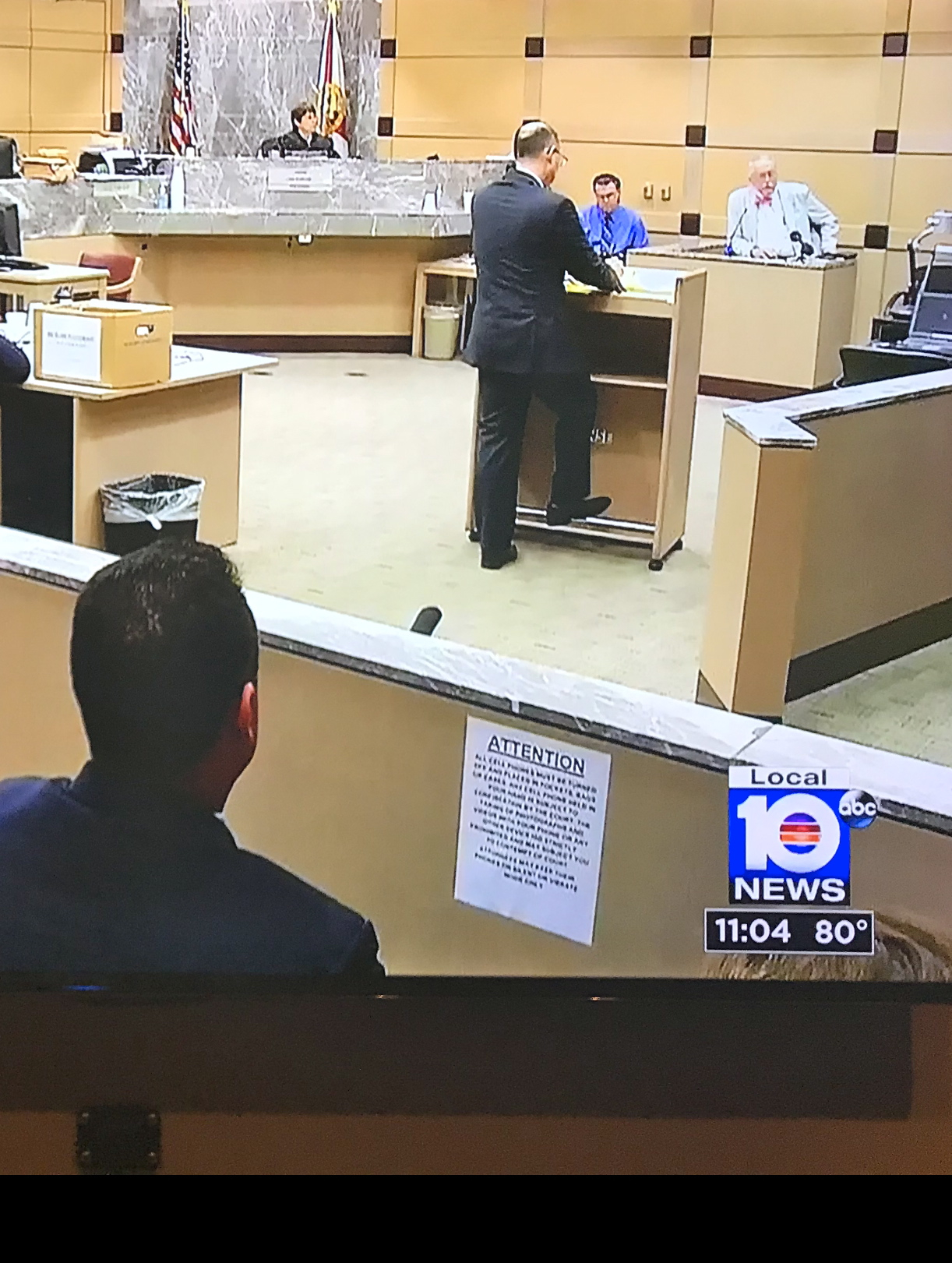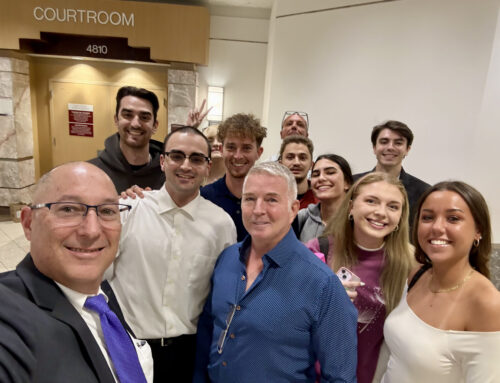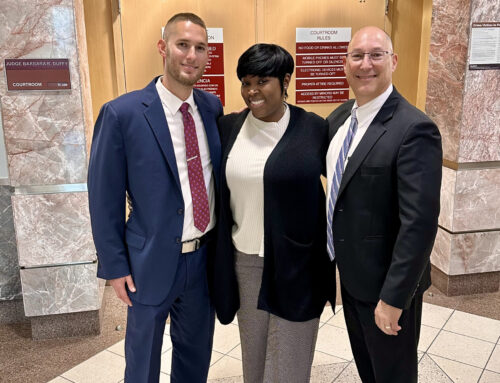“I think the focus should be on a horrible tragic situation of a missing young woman and finding her,” Ken Padowitz, David Knezevic’s Fort Lauderdale-based attorney, told the Sun Sentinel on Tuesday. “The focus should not be on a man who was not in the country and has been cast as a person in the role of a hotly contested divorce, which is just not accurate. That narrative is false.”

Nearly three weeks have passed since Ana Knezevic disappeared in Madrid without a trace. No one has heard from the 40-year-old Fort Lauderdale businesswoman since a suspicious text message sent to her friends proclaimed she had met “a wonderful man” on the street.
The FBI is working with Spanish police to investigate the case, though the agencies have not announced any suspects or leads. But Ana’s estranged husband, David Knezevic, spoke to media for the first time this week through his attorney, rejecting the suggestion that he had something to do with his wife’s disappearance and countering the narrative put forth by her family that the two were going through a difficult divorce.
“I think the focus should be on a horrible tragic situation of a missing young woman and finding her,” Ken Padowitz, David Knezevic’s Fort Lauderdale-based attorney, told the Sun Sentinel on Tuesday. “The focus should not be on a man who was not in the country and has been cast as a person in the role of a hotly contested divorce, which is just not accurate. That narrative is false.”
Where is Ana Knezevic; what, if anything, does the divorce have to do with her disappearance; and are authorities any closer to finding her? Two former FBI agents spoke with the Sun Sentinel this week about what might have happened to her and what investigators will look for.

The disappearance
Ana Knezevic had traveled to Spain on Dec. 27. She and David Knezevic were in the midst of a divorce, though no paperwork had been filed.
She spent the day of Feb. 1 looking at apartments in Spain so that she could stay there more permanently, according to the family spokesperson, Joaquín Amills. That night, a man in a helmet spray-painted surveillance cameras at the apartment where Knezevic was staying.
The next day, Feb. 2, a strange text from her phone was sent to her friends: “I met someone wonderful!! he has a summer house about 2h from Madrid. We are going there now and I will spend a few days there. Signal is spotty. I’ll call you when I get back.”
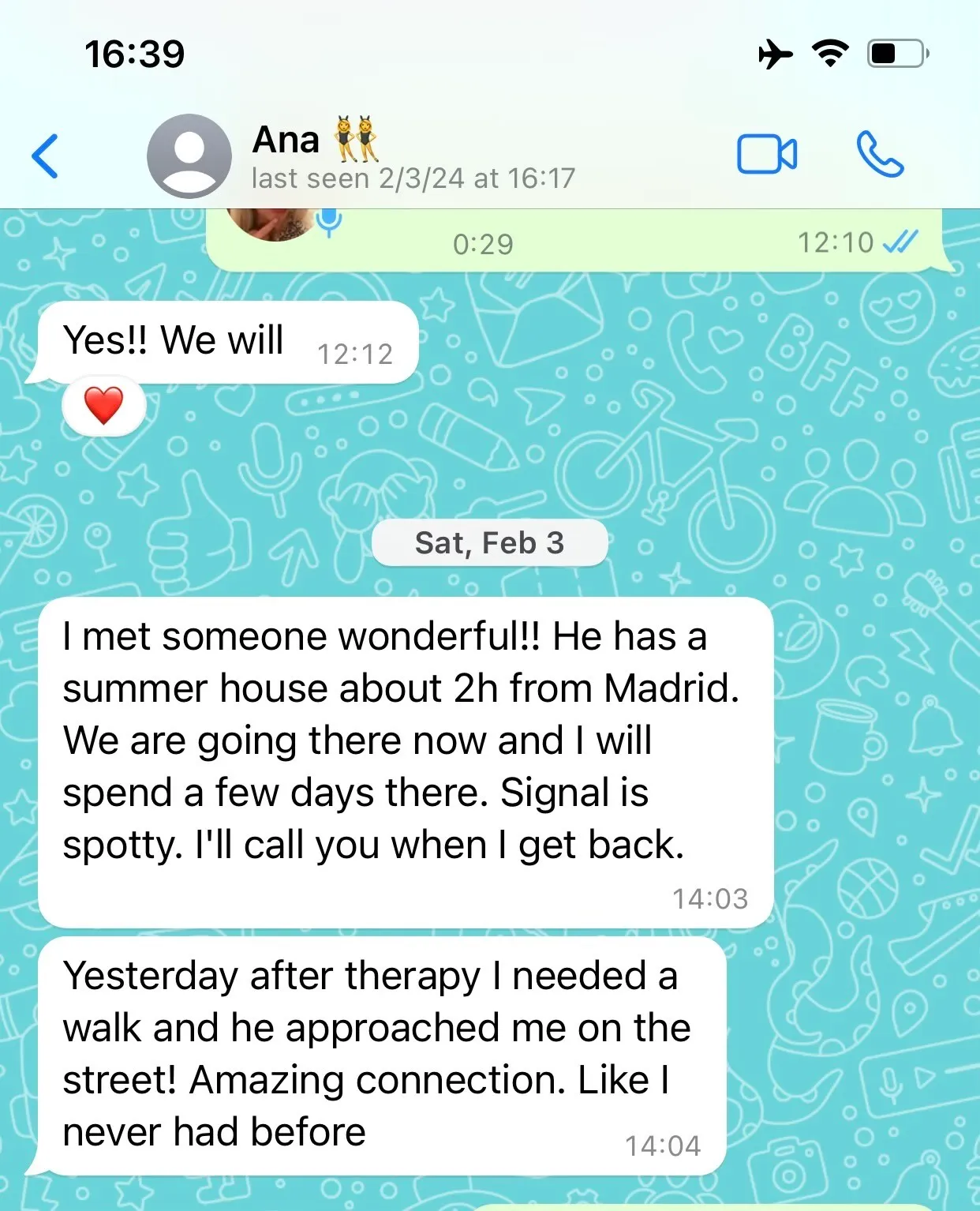
A strange text sent from Ana Knezevic’s phone just before her disappearance. Friends say the text was the last time anyone heard from her.
Another was sent one minute later: “Yesterday after therapy I needed a walk and he approached me on the street! Amazing connection. Like I never had before.”
Knezevic’s phone has not turned back on since, her best friend, Sanna Rameau said. Texts Rameau sent back appeared undelivered. The Spanish text appeared to have been translated from English, Knezevic’s brother, Juan Felipe Henao, told police.
Meanwhile, David Knezevic had moved to Serbia at some point before his wife’s disappearance, Padowitz said, though he didn’t provide a specific date. David Knezevic returned home to Fort Lauderdale for a week in late January, where he filed a police report on Jan. 25 about a car break-in. Then he flew back to Serbia on Jan. 27, Padowitz said.
Husband’s role
The divorce and David Knezevic’s apparent exit from the country placed him under suspicion in the weeks since Ana Knezevic disappeared.
Knezevic’s family explicitly asked Fort Lauderdale Police to talk to her husband, according to a February police report. Her brother, Henao, told them that they were going through a “nasty divorce” with a lot of money on the line, according to a police report, and David Knezevic “was not happy about it.”
But Padowitz said that the two had been discussing divorcing through only one attorney, evidence of their separation being amicable, not hostile.
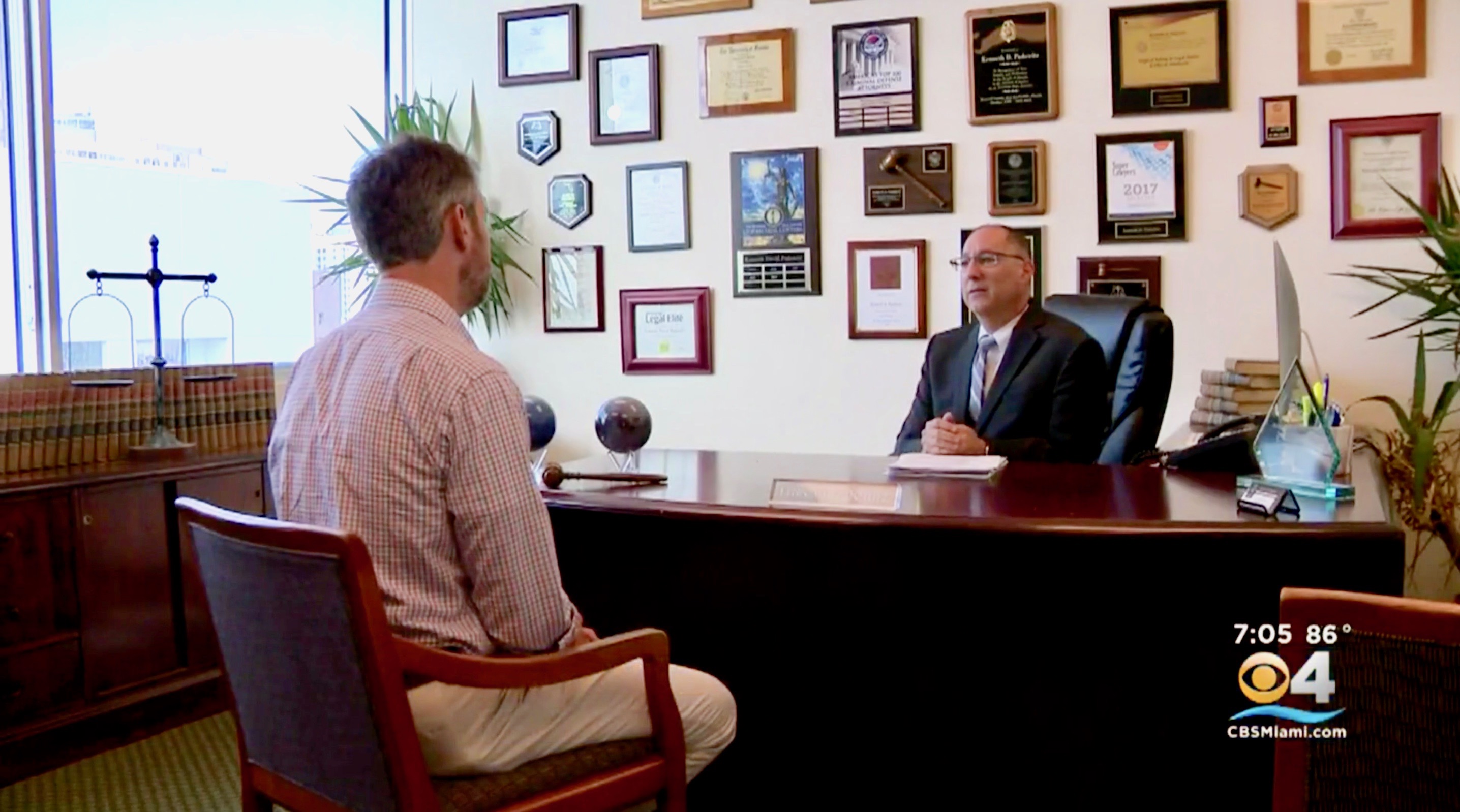
There was “no hotly contested divorce, no divorce proceedings yet, no lawyers hired, no legal proceedings, no attorneys, no nasty pleadings from lawyers, no emails back and forth,” Padowitz said. “None of that has occurred. The description that it’s a nasty divorce is just false.”
There was “no hotly contested divorce, no divorce proceedings yet, no lawyers hired, no legal proceedings, no attorneys, no nasty pleadings from lawyers, no emails back and forth,” Padowitz said. “None of that has occurred. The description that it’s a nasty divorce is just false.”
About the time that Ana Knezevic left for Spain, her husband began selling the properties they owned throughout the county, Broward property appraiser records show. Padowitz said the two were selling the properties together in preparation for the divorce.
David Knezevic sold three different homes, two in Fort Lauderdale and one in Pompano Beach, worth about $1 million each, to an LLC called AIM Partners, property records show. Two of the homes he recently sold had been threatened with foreclosure, according to court records.
The couple separated about three to four months before Ana Knezevic disappeared, Padowitz said. At some point “months ago,” David Knezevic moved to Serbia..
Padowitz did not have an exact date or reason for David’s move, but described it as a long-term choice. He got an apartment, where he “has cable, has a phone, all the things that go with having an apartment,” Padowitz said.
David Knezevic has also since hired a lawyer to assist police in Spain and South Florida. He has helped police “fill out certain forms” in order to enter Ana Knezevic’s apartment in Spain, Padowitz said, and has provided credit card information.
Padowitz rejected the idea that David Knezevic’s remaining in Serbia after his wife’s disappearance was suspicious.
“He does not have a home in Spain,” he said. “Does not have a house or apartment in Spain. Does not have friends in Spain. Does not have relatives in Spain. He does not speak the Spanish language. It’s a personal decision as to whether he’s going to fly to another country where he has nowhere to stay and doesn’t speak the language.”
David Knezevic still owns the couple’s Fort Lauderdale home on Northeast Eighth Avenue.
Police have responded to the address 26 times since the couple bought the home in 2018, records show. Reports detail multiple noise complaints over parties, break-ins and thefts of David Knezevic’s belongings, a construction employee harassing Knezevic over not being paid, and a stop work order because of a bathroom remodeling he was doing without a permit. But nothing indicates Ana Knezevic might have been in danger.
Asked if David Knezevic would speak to the Sun Sentinel, Padowitz said, “David’s first inclination was to speak out. But I cautioned him and gave him legal advice that that’s not a prudent thing to do in this situation. It would be malpractice if I told my client, ‘go out and answer a thousand questions from media.’”
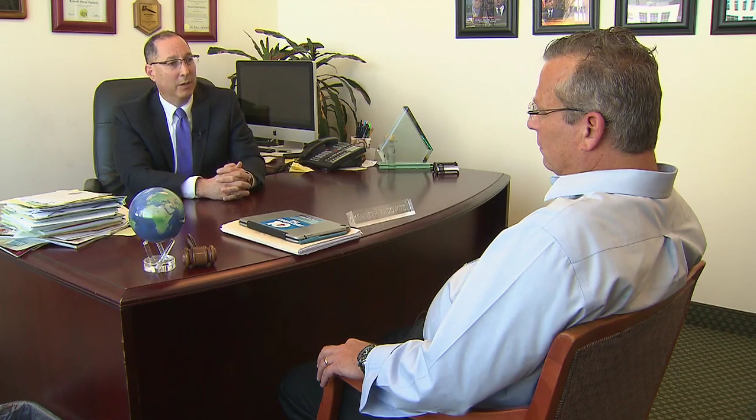
What will investigators look at?
In any missing person investigation, the first 24 hours are crucial. Police have likely already canvassed the neighborhood multiple times, speaking with those who knew Ana Knezevic and were expecting her.
“It usually starts with a neighborhood canvas. Canvas the neighborhood, not just once, but twice or more. Surrounding cameras should be checked, and dumpsters should be checked as well. That is a common practice, to see if anything case-related was discarded, including a body, potentially,” said Toni Chrabot, a retired assistant special agent in charge and hostage negotiator in FBI’s Jacksonville division who now leads Risk Confidence Group, a private investigations and consulting firm.
Beyond that, investigators might check local hospitals, even morgues, said Peter Yachmetz, a retired FBI agent of 28 years who now runs a private security business called Yachmetz Consulting Group.
Ana Knezevic’s phone is also very important, Chrabot said. Even though she’s abroad, her family might still be able to access her accounts from the U.S. It is unclear whether police have received permission to look at her phone records.
Rameau said Wednesday that police have searched Knezevic’s apartment in Spain, though her family spokesperson said there had been no evidence of foul play inside.
“According to current news reports there was no evidence of foul play, but a ruse could have been used to get her to answer the door and then be overpowered,” Chrabot said. “The question now is why.”
Police likely swabbed the apartment for DNA and put it into a CODIS system, Yachmetz said, a database of DNA from convicted criminals, evidence from unsolved crime scenes, and missing persons.
In Spain, a small unit of FBI agents will be working under a “legal attaché,” the supervisor and main point of contact. Investigating this way presents unique difficulties and takes time; technically, the FBI has no jurisdiction in Spain, besides what the Spanish government allows.
Typically only a few FBI agents are assigned to a legal attaché, said Yachmetz, who has worked in legal attaché units in the Bahamas and Colombia.
“I know the family wants it done yesterday,” Yachmetz said. “But unfortunately if you only have one guy or gal over in Madrid for the FBI and other local agencies, you can’t go out and do it yourself, you need them going with you. Unfortunately, their manpower, they may be stretched very thin. It’s a contributing factor to what seems to be a slow-moving process.”
Interviewing David Knezevic would be crucial to the case, Yachmetz said. Though he has been in touch with authorities, that “doesn’t indicate whether an FBI agent and Serbian police have gone out and sat with him at length.”
Padowitz told reporters that he and David Knezevic’s other attorney will speak to police on his behalf.
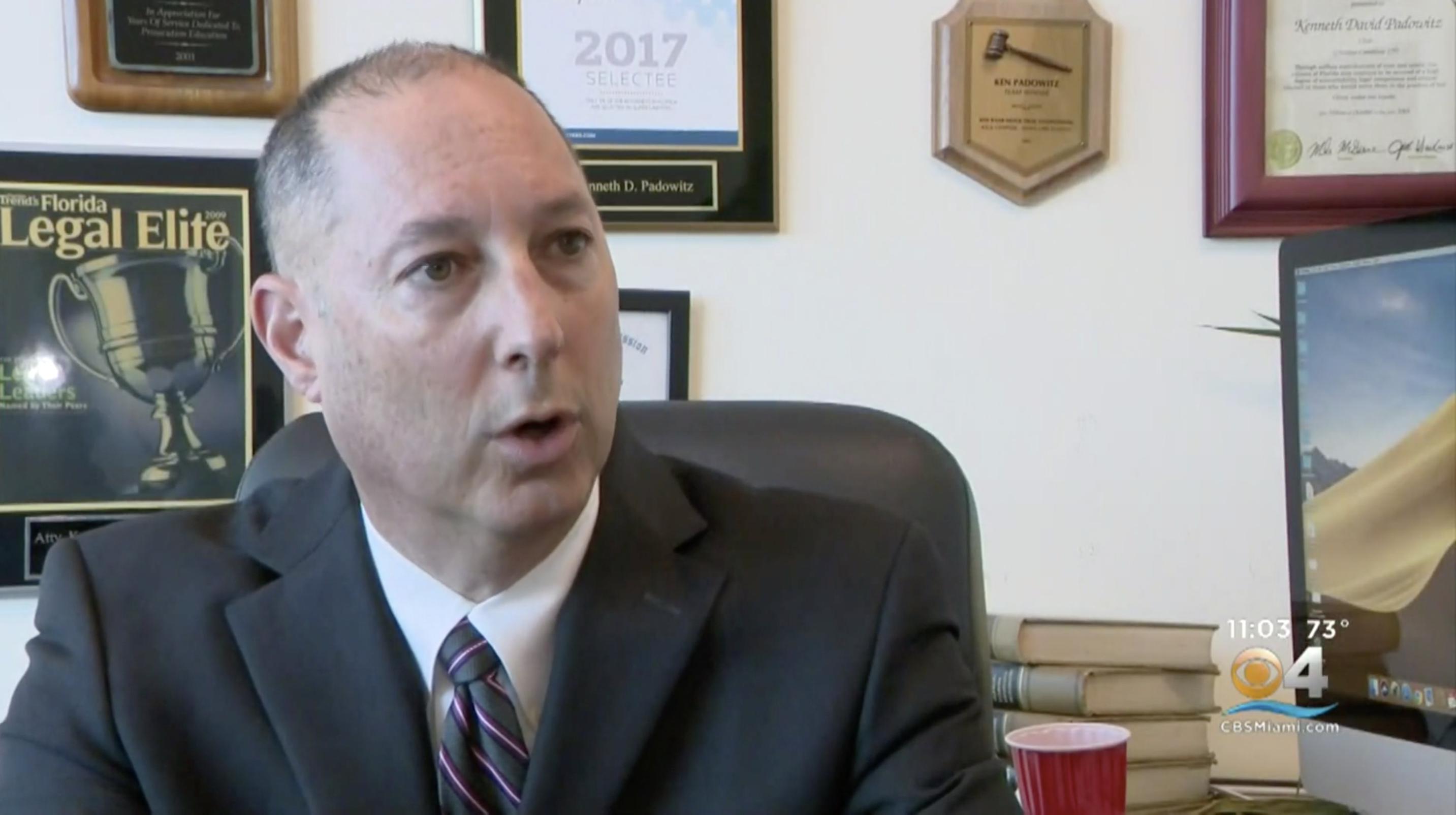
What could have happened?
Though experts declined to give their own theories as to what happened to Ana Knezevic, they said that some possibilities are more likely than others.
Human trafficking is unlikely, Chrabot and Yachmetz agreed. Knezevic could have disappeared on her own, perhaps wanting to “get away from everything” with the divorce, Yachmetz said. But Chrabot thinks something happened to her against her will.
“Usually when you make future plans, you intend to keep those plans,” she said. “And there was no indication she intended to change her plans. Which makes me think it was a kidnapping, for reasons other than ransom.”
The amount of time that has passed with no notice is not a good sign. If Knezevic was alive but kidnapped for ransom, there would likely have been some indication of life by now.
“Usually if it’s a kidnapping for ransom, you get something within a window of time,” Chrabot said. “It can be a few days, but it’s typically not three weeks.”
A random act of violence is also possible. Rameau said that Knezevic had been using social media platforms “to build new friendships in Madrid.”
“She is not dating anyone at the moment and police are talking to everyone that she’s in contact with in Madrid … men and women,” Rameau said in a text.
David Knezevic has no theories as to what happened to his wife, Padowitz said.
“He has no information about what was happening in another country that he was not residing in,” he said. “He has no idea what happened.”
